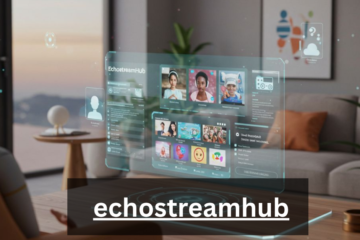In today’s rapidly evolving digital landscape, how we consume media has dramatically shifted. Traditional cable TV is no longer the dominant force it once was, as more viewers turn to internet-based solutions for their entertainment needs. One such solution that has gained significant popularity is IPTV services. Short for Internet Protocol Television, IPTV delivers television content through internet protocol networks, allowing users to stream their favorite channels and shows via the internet. This blog will explore the ins and outs of IPTV services, how they work, their benefits, and why they are fast becoming the preferred choice for millions around the globe.
What are IPTV Services?
At its core, IPTV services differ from conventional TV broadcasting in how the content is delivered to the viewer. Traditional TV relies on satellite signals, cable, or antenna to transmit programs. However, IPTV services utilize the internet to deliver television content. This means viewers can access live TV, video-on-demand (VOD), and recorded shows through their internet connection, whether via a computer, smart TV, or a mobile device.
Instead of broadcasting all channels at once, as is the case with cable, IPTV services send only the content requested by the user. This personalized approach has made it possible for viewers to enjoy TV in a more flexible and convenient manner, tailored to their specific needs and viewing habits.
How Do IPTV Services Work?
The operation of IPTV services is simple but relies on advanced technology. When a user selects a channel or video to watch, the request is sent over the internet to the IPTV provider’s server. The server then processes the request and streams the video content back to the user’s device. This process happens in real-time and is powered by high-speed internet connections.
One of the primary components that make IPTV services unique is the use of a “set-top box” or an application installed on devices. These devices decode the digital signals delivered over the internet and present the content in a viewable format. However, the increasing presence of smart TVs and IPTV apps means that many users no longer require a set-top box, further simplifying access to IPTV.
Types of IPTV Services
There are generally three main types of IPTV services that cater to various needs:
Live Television: This is the closest IPTV experience to traditional TV. Viewers can watch broadcasts live as they are aired, just like cable or satellite TV. The difference is that IPTV services deliver the content over the internet, allowing for more flexibility and often higher resolution streams.
Video on Demand (VOD): With VOD, users can select from a vast library of content and stream it at their convenience. It is similar to how platforms like Netflix operate. This type of IPTV service allows viewers to watch what they want, when they want, bypassing traditional TV schedules.
Time-Shifted Media: This feature allows viewers to watch previously aired content on demand. Some IPTV services offer a DVR-like function where users can pause, rewind, and replay live TV broadcasts. This flexibility ensures viewers don’t miss their favorite shows even if they can’t watch them live.
Benefits of IPTV Services
The surge in popularity of IPTV services is largely due to the numerous advantages they offer over traditional broadcasting methods. One of the key benefits is convenience. With IPTV services, viewers are no longer tied to specific time slots or locations. The ability to stream live and recorded TV on multiple devices means users can watch from anywhere with an internet connection.
Additionally, the variety of content available through IPTV services is staggering. While traditional TV has a set number of channels, IPTV platforms offer thousands of channels, movies, and TV shows from around the world. The inclusion of niche channels and international content has made IPTV services particularly appealing to viewers seeking diverse entertainment options.
Another significant advantage of IPTV services is the higher level of interactivity they offer. Viewers can pause, fast-forward, or rewind live TV, creating a more personalized viewing experience. Many IPTV services also integrate with social media, allowing users to share content and interact with their favorite shows and personalities in real time.
IPTV and the Future of Entertainment
With the rise of smart homes and connected devices, the integration of IPTV services into daily life is becoming more seamless. Users can control their IPTV channels using voice assistants, set up reminders, and even automate content playback with other smart devices. This level of convenience is reshaping how people view entertainment, blending traditional TV experiences with the modern digital lifestyle.
Moreover, IPTV services are scalable. This means that whether you are an individual user, a business, or a hotel with thousands of rooms, you can scale the service to fit your needs. For example, many hotels and businesses are now opting for IPTV services to provide guests and employees with personalized entertainment experiences.
With the rapid pace of technological advancements, it’s likely that IPTV services will continue to evolve, incorporating new features and higher-quality streams. As more users adopt IPTV, providers will undoubtedly invest in expanding their offerings to include even more interactive, on-demand content.
IPTV vs. OTT Services
While discussing IPTV services, it’s important to differentiate between IPTV and OTT (Over-the-Top) services. OTT services, like Netflix and Hulu, also deliver content via the internet. However, they operate differently from IPTV. OTT services don’t rely on a network infrastructure and are available over the open internet, which can sometimes lead to buffering and quality issues if the connection isn’t stable.
On the other hand, IPTV services are delivered over a private network managed by the IPTV provider. This control over the network ensures better quality streams and a more reliable connection, making IPTV a better choice for live events, like sports or news broadcasts.
Choosing the Right IPTV Service Provider
Given the rising demand, there are now hundreds of IPTV services available in the market. Selecting the right provider can be overwhelming, but there are a few factors to consider:
Content Availability: Ensure the provider offers the channels and VOD content you are interested in.
Device Compatibility: Choose a service that is compatible with your preferred devices, whether it’s a smart TV, mobile phone, or computer.
Stream Quality: A reliable IPTV service should offer high-quality streams with minimal buffering, particularly if you plan on watching live events.
Customer Support: Since IPTV services depend heavily on internet connectivity, issues may arise. Opt for a provider with good customer support to help resolve any technical problems swiftly.
Conclusion
IPTV services have transformed the way we watch television, offering more flexibility, greater content variety, and higher quality streams than traditional cable or satellite TV. As technology continues to advance, it is likely that IPTV will become the standard method for television delivery, catering to a world that increasingly prioritizes convenience and on-demand entertainment.
Whether you are interested in live TV, VOD, or time-shifted media, IPTV services provide a comprehensive solution for all your entertainment needs. With the rise of smart devices and internet connectivity, IPTV is the future of television, offering a level of customization and convenience that is unmatched by conventional broadcasting.



